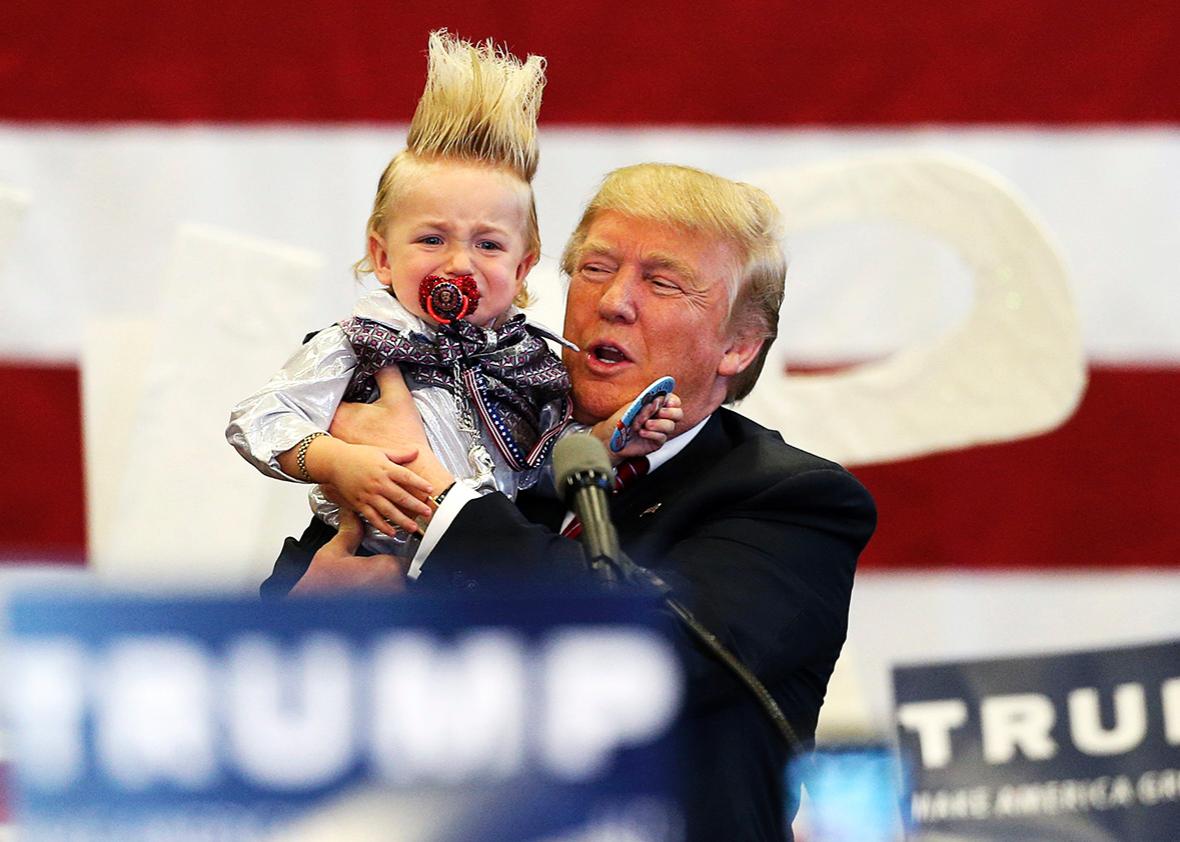A version of this story was originally published by ProPublica.
GOP nominee Donald Trump has said he plans to spend billions of dollars on so-called school choice programs. The $20 billion in federal funds would be available only to what he says are 11 million children living in poverty who are also “trapped in failing schools.” Families will be eligible for vouchers to send their children to charter, magnet, or even private religious schools. On Friday, he announced the policy would include home schooling as well.
“School choice is at the center of this civil rights agenda, and my goal is to provide every single inner-city child in America that is trapped in a failing government school the freedom to attend the school of their choice,” he said at a conservative voters conference. “School choice also means that parents can home-school their children. Hundred percent.”
But there’s one problem with Trump’s home-schooling plan: Impoverished home-schoolers mostly don’t exist.
“Ideologically speaking, this is significant, but practically very few students will use this money to home-school,” said Milton Gaither, an education professor at Messiah College. Gaither saw the announcement as a gesture to conservative Christians instead of an actual plan for poor families. “I don’t see a mass movement of the nation’s poor applying for federal funding so they can educate their children themselves.”
The National Center of Education Statistics paints a clear picture of who home-schools— and it isn’t poor inner-city families. In 2012, only 5 percent of home-schooling families made less than $20,000 per year—which is just under the poverty line for a family of four. The survey also shows that 83 percent of home-schooled children are white, and almost 85 percent belong to two-parent households. Home-schooling parents are also far better educated than average—about three-fourths of them have completed at least some higher education.
By comparison, all of the 11 million children his plan targets are in poverty. Two-thirds of children in poverty are nonwhite. Only a third of poor children live with married parents, and more than 60 percent of parents of low-income children have no higher education.
Christopher Lubienski, an education professor at Indiana University who studies home schooling, said these families are unlikely to take up home schooling because of the “huge opportunity costs” involved even if the federal money might soften some of the blow. Single working parents, for example, are unlikely to give up their full-time jobs to stay home and educate their children in exchange for a few thousand dollars via Trump’s vouchers.
Trump has not given any details about how his plan would work—other than to say that states would have leeway in spending the money. The campaign did not immediately respond to a request for comment.
In addition to the $20 billion in federal spending—which adds up to one-third of the Education Department’s total current budget—Trump has asked states to kick in another $110 billion. It is quite unlikely that states would spend anything like that.
Almost identical voucher proposals for impoverished students have failed at both the state and federal levels, and Trump offers no reason why his plan would not meet a similar fate.
Sen. Lamar Alexander, R-Tennessee, proposed a $24 billion bill in 2015 that would have given poor families vouchers for private schools. The bill failed in a Republican-controlled Congress. Several state governments have also failed to pass voucher programs, including conservative states like Texas and South Carolina.
“If it’s coming out of other school budgets, state legislators have been very hesitant to pass voucher bills even if they like the idea in general,” Lubienski said.
Another reason vouchers for home schooling haven’t been successful is because current home-schoolers actually oppose them. They see them as a vehicle for more government regulation. Government, after all, isn’t in the business of handing out money with no strings attached.
The Home School Legal Defense Association, which has long fought against home-schooling regulations, is opposed to vouchers. “HSLDA opposes vouchers as they are not a free hand-out from the government and will regulate parental freedoms,” the group says on its website.
The organization has successfully lobbied against bills in Nevada and New Jersey that would have given home-schoolers money. It even called out then-presidential candidate Ben Carson when he hinted at his support for vouchers.
The group, interestingly, has not come out swinging against Trump’s proposal. “Usually when the government is offering free money, there are strings attached, but we don’t know enough about Mr. Trump’s plan to make any comment one way or the other,” said Michael Farris Jr., the HSLDA media relations representative, who said they’ll continue to monitor legislation introduced in Congress next year “to make sure home-school freedom is protected.”
